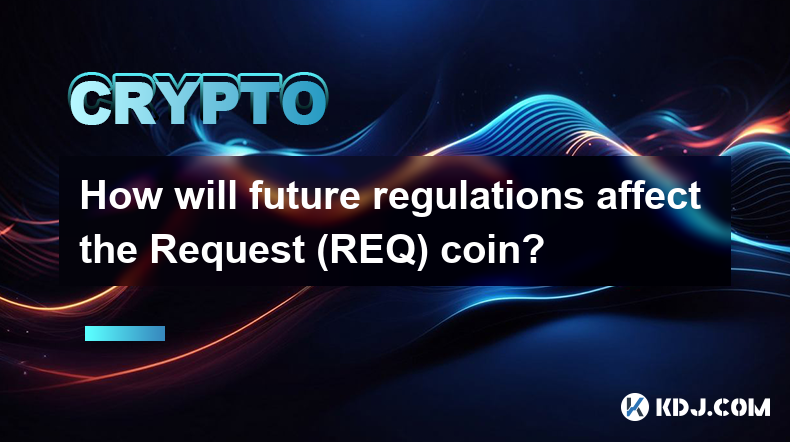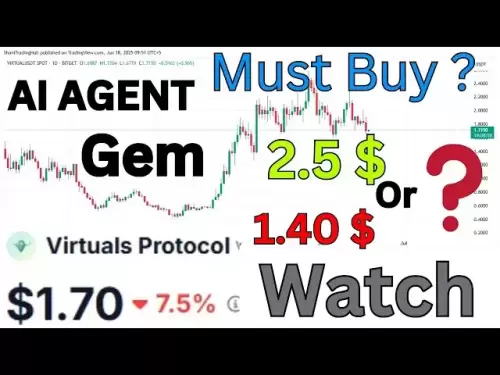-
 Bitcoin
Bitcoin $106,754.6083
1.33% -
 Ethereum
Ethereum $2,625.8249
3.80% -
 Tether USDt
Tether USDt $1.0001
-0.03% -
 XRP
XRP $2.1891
1.67% -
 BNB
BNB $654.5220
0.66% -
 Solana
Solana $156.9428
7.28% -
 USDC
USDC $0.9998
0.00% -
 Dogecoin
Dogecoin $0.1780
1.14% -
 TRON
TRON $0.2706
-0.16% -
 Cardano
Cardano $0.6470
2.77% -
 Hyperliquid
Hyperliquid $44.6467
10.24% -
 Sui
Sui $3.1128
3.86% -
 Bitcoin Cash
Bitcoin Cash $455.7646
3.00% -
 Chainlink
Chainlink $13.6858
4.08% -
 UNUS SED LEO
UNUS SED LEO $9.2682
0.21% -
 Avalanche
Avalanche $19.7433
3.79% -
 Stellar
Stellar $0.2616
1.64% -
 Toncoin
Toncoin $3.0222
2.19% -
 Shiba Inu
Shiba Inu $0.0...01220
1.49% -
 Hedera
Hedera $0.1580
2.75% -
 Litecoin
Litecoin $87.4964
2.29% -
 Polkadot
Polkadot $3.8958
3.05% -
 Ethena USDe
Ethena USDe $1.0000
-0.04% -
 Monero
Monero $317.2263
0.26% -
 Bitget Token
Bitget Token $4.5985
1.68% -
 Dai
Dai $0.9999
0.00% -
 Pepe
Pepe $0.0...01140
2.44% -
 Uniswap
Uniswap $7.6065
5.29% -
 Pi
Pi $0.6042
-2.00% -
 Aave
Aave $289.6343
6.02%
How will future regulations affect the Request (REQ) coin?
Regulations on cryptocurrencies may significantly impact Request (REQ), affecting its compliance costs, reporting requirements, usage limitations, consumer protection, and adoption.
Dec 24, 2024 at 04:43 am

Key Points
- Impact of Regulations on Request (REQ): Governments worldwide are increasingly implementing regulations on cryptocurrencies, which could significantly impact the REQ coin.
- Potential Benefits: Regulatory clarity and consumer protection can foster confidence in REQ and other cryptocurrencies, leading to increased adoption and value appreciation.
- Possible Challenges: Regulations may impose compliance costs, reporting requirements, and limitations on the use of REQ, potentially hindering its growth and development.
Article Content
Regulations and Cryptocurrency:
Governments have been taking a proactive stance in regulating cryptocurrencies. These regulations aim to protect consumers, prevent market manipulation, and combat illicit activities. Regulations can vary widely from country to country, impacting cryptocurrencies in different ways.
Impact on Request (REQ):
Request (REQ) is a cryptocurrency used for digital payments and request-for-payment (RFP) solutions. It is particularly popular in supply chain management and cross-border payments. Future regulations will likely affect REQ in various ways:
1. Compliance Costs:
- Regulations may require REQ exchanges and other service providers to implement KYC (Know-Your-Customer) procedures, anti-money laundering (AML) measures, and other compliance mechanisms.
- These requirements can increase operational costs for businesses dealing with REQ, potentially impacting their profitability and the accessibility of REQ services.
2. Reporting Requirements:
- Regulations could mandate that entities transacting in REQ report their activities to relevant authorities, such as tax agencies or financial intelligence units (FIUs).
- This reporting may increase the administrative burden and costs for businesses and users, and could hinder the anonymity and privacy associated with cryptocurrency transactions.
3. Restrictions on Use:
- Regulations may restrict the use of REQ for certain purposes, such as payments for illegal goods or services, or may impose limits on the transfer of REQ to and from certain jurisdictions.
- Such restrictions could limit the utility and adoption of REQ, affecting its value and liquidity.
4. Enhanced Consumer Protection:
- Regulations can provide clearer guidelines for consumer protection and dispute resolution mechanisms, increasing trust and confidence in REQ and other cryptocurrencies.
- This enhanced protection may attract new users and investors, positively impacting the value and demand for REQ.
5. Increased Adoption:
- Regulatory clarity can remove uncertainty and create a more favorable environment for the adoption of REQ and other cryptocurrencies by businesses and consumers.
- Increased adoption could lead to higher demand and value for REQ, as well as wider recognition and acceptance.
FAQs
Q: Will regulations benefit Request (REQ)?
A: Regulations can bring both benefits and challenges to REQ. While they may increase compliance costs and reporting requirements, they can also enhance consumer protection, foster adoption, and reduce uncertainty. The overall impact will depend on the specific regulations implemented.
Q: How will regulations affect the price of REQ?
A: The impact of regulations on REQ's price is difficult to predict. Regulatory clarity and increased adoption could lead to higher demand and value appreciation. However, restrictions on use or compliance costs could have a negative impact on REQ's price.
Q: What should REQ holders do in light of potential regulations?
A: REQ holders should stay informed about regulatory developments and monitor how they may affect the coin's utility and value. It is also crucial to be compliant with applicable regulations to avoid any potential legal or financial risks.
Disclaimer:info@kdj.com
The information provided is not trading advice. kdj.com does not assume any responsibility for any investments made based on the information provided in this article. Cryptocurrencies are highly volatile and it is highly recommended that you invest with caution after thorough research!
If you believe that the content used on this website infringes your copyright, please contact us immediately (info@kdj.com) and we will delete it promptly.
- Riding the Solana Wave: Spot ETFs and Investment Opportunities
- 2025-06-18 22:45:12
- Hedera (HBAR) and 2030 Wealth: A Realistic Outlook
- 2025-06-18 23:05:12
- XRP Lawsuit: Settlement Hopes Rise with Bill Morgan's Insights
- 2025-06-18 23:22:17
- Solaxy Presale: Is This Crypto Explosion the Next Big Thing on Solana?
- 2025-06-18 22:25:13
- Alchemy Pay, Ripple, and RLUSD: A New Era for Crypto Payments?
- 2025-06-18 22:45:12
- QBI Token, AI Fintech, and Cloud Deployment: A New Era in Finance
- 2025-06-18 23:24:19
Related knowledge

How to customize USDT TRC20 mining fees? Flexible adjustment tutorial
Jun 13,2025 at 01:42am
Understanding USDT TRC20 Mining FeesMining fees on the TRON (TRC20) network are essential for processing transactions. Unlike Bitcoin or Ethereum, where miners directly validate transactions, TRON uses a delegated proof-of-stake (DPoS) mechanism. However, users still need to pay bandwidth and energy fees, which are collectively referred to as 'mining fe...

USDT TRC20 transaction is stuck? Solution summary
Jun 14,2025 at 11:15pm
Understanding USDT TRC20 TransactionsWhen users mention that a USDT TRC20 transaction is stuck, they typically refer to a situation where the transfer of Tether (USDT) on the TRON blockchain has not been confirmed for an extended period. This issue may arise due to various reasons such as network congestion, insufficient transaction fees, or wallet-rela...

How to cancel USDT TRC20 unconfirmed transactions? Operation guide
Jun 13,2025 at 11:01pm
Understanding USDT TRC20 Unconfirmed TransactionsWhen dealing with USDT TRC20 transactions, it’s crucial to understand what an unconfirmed transaction means. An unconfirmed transaction is one that has been broadcasted to the blockchain network but hasn’t yet been included in a block. This typically occurs due to low transaction fees or network congestio...

What to do if USDT TRC20 transfers are congested? Speed up trading skills
Jun 13,2025 at 09:56am
Understanding USDT TRC20 Transfer CongestionWhen transferring USDT TRC20, users may occasionally experience delays or congestion. This typically occurs due to network overload on the TRON blockchain, which hosts the TRC20 version of Tether. Unlike the ERC20 variant (which runs on Ethereum), TRC20 transactions are generally faster and cheaper, but during...

The relationship between USDT TRC20 and TRON chain: technical background analysis
Jun 12,2025 at 01:28pm
What is USDT TRC20?USDT TRC20 refers to the Tether (USDT) token issued on the TRON blockchain using the TRC-20 standard. Unlike the more commonly known ERC-20 version of USDT (which runs on Ethereum), the TRC-20 variant leverages the TRON network's infrastructure for faster and cheaper transactions. The emergence of this version came as part of Tether’s...

How to monitor large USDT TRC20 transfers? Tracking tool recommendation
Jun 12,2025 at 06:49pm
Understanding USDT TRC20 TransfersTether (USDT) is one of the most widely used stablecoins in the cryptocurrency ecosystem. It exists on multiple blockchains, including TRON (TRC20). The TRC20 version of USDT operates on the TRON network and offers faster transaction speeds and lower fees compared to its ERC-20 counterpart on Ethereum. When discussing l...

How to customize USDT TRC20 mining fees? Flexible adjustment tutorial
Jun 13,2025 at 01:42am
Understanding USDT TRC20 Mining FeesMining fees on the TRON (TRC20) network are essential for processing transactions. Unlike Bitcoin or Ethereum, where miners directly validate transactions, TRON uses a delegated proof-of-stake (DPoS) mechanism. However, users still need to pay bandwidth and energy fees, which are collectively referred to as 'mining fe...

USDT TRC20 transaction is stuck? Solution summary
Jun 14,2025 at 11:15pm
Understanding USDT TRC20 TransactionsWhen users mention that a USDT TRC20 transaction is stuck, they typically refer to a situation where the transfer of Tether (USDT) on the TRON blockchain has not been confirmed for an extended period. This issue may arise due to various reasons such as network congestion, insufficient transaction fees, or wallet-rela...

How to cancel USDT TRC20 unconfirmed transactions? Operation guide
Jun 13,2025 at 11:01pm
Understanding USDT TRC20 Unconfirmed TransactionsWhen dealing with USDT TRC20 transactions, it’s crucial to understand what an unconfirmed transaction means. An unconfirmed transaction is one that has been broadcasted to the blockchain network but hasn’t yet been included in a block. This typically occurs due to low transaction fees or network congestio...

What to do if USDT TRC20 transfers are congested? Speed up trading skills
Jun 13,2025 at 09:56am
Understanding USDT TRC20 Transfer CongestionWhen transferring USDT TRC20, users may occasionally experience delays or congestion. This typically occurs due to network overload on the TRON blockchain, which hosts the TRC20 version of Tether. Unlike the ERC20 variant (which runs on Ethereum), TRC20 transactions are generally faster and cheaper, but during...

The relationship between USDT TRC20 and TRON chain: technical background analysis
Jun 12,2025 at 01:28pm
What is USDT TRC20?USDT TRC20 refers to the Tether (USDT) token issued on the TRON blockchain using the TRC-20 standard. Unlike the more commonly known ERC-20 version of USDT (which runs on Ethereum), the TRC-20 variant leverages the TRON network's infrastructure for faster and cheaper transactions. The emergence of this version came as part of Tether’s...

How to monitor large USDT TRC20 transfers? Tracking tool recommendation
Jun 12,2025 at 06:49pm
Understanding USDT TRC20 TransfersTether (USDT) is one of the most widely used stablecoins in the cryptocurrency ecosystem. It exists on multiple blockchains, including TRON (TRC20). The TRC20 version of USDT operates on the TRON network and offers faster transaction speeds and lower fees compared to its ERC-20 counterpart on Ethereum. When discussing l...
See all articles

























































































